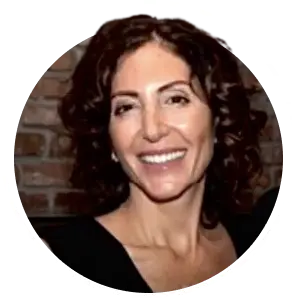Many people with drug or alcohol use disorders successfully recover using 12 step programs. While these programs may be effective for some individuals, they are not the only path to recovery. Today there are many resources available that can assist those trying to get past drug dependency. Each person’s struggle with substance use is unique and there is no one ‘correct’ treatment plan. Professionals can work with patients to refer them to a treatment center or program that fits their needs and unique situation.
What Is the 12 Step Program?
The original 12 Step Program was created by the founders of AA, or Alcoholics Anonymous. Throughout this program, an individual who is just starting their journey to recovery is typically sponsored by another AA member who has been sober for a period of time. Some of the wording of the 12 steps have been changed throughout the years to better fit other recovery groups for example, Narcotics Anonymous. The original 12 steps are listed below:
- We admitted we were powerless over alcohol (our addiction)–that our lives had become unmanageable.
- We came to believe that a Power greater than ourselves could restore us to sanity.
- We made a decision to turn our will and our lives over to the care of God as we understood Him.
- We made a searching and fearless moral inventory of ourselves.
- We admitted to God, to ourselves, and to another human being the exact nature of our wrongs.
- We were entirely ready to have God remove all these defects of character.
- We humbly asked Him to remove our shortcomings.
- We made a list of all persons we had harmed and became willing to make amends to them all.
- We made direct amends to such people wherever possible, except when to do so would injure them or others.
- We continued to take a personal inventory and when we were wrong promptly admitted it.
- We sought through prayer and meditation to improve our conscious contact with God as we understood Him, praying only for knowledge of His will for us and the power to carry that out.
- Having had a spiritual awakening as the result of these steps, we tried to carry this message to alcoholics (addicts) and to practice these principles in all our affairs.
Limitations of the 12 Step Program
As is evident by the wording above, the 12 Step Program is a recovery plan that is largely based upon a higher power who is referred to as “God.” While this may work for those that believe in a God, it may cause issues or be a barrier to those who do not want to be involved with a higher power. While the 12 step program is not religious, it does encourage spirituality, and that may not be what someone needs. At the end of the day, choosing to get sober and remaining sober is something that the individual must take responsibility for.
One thing to remember about 12 step groups is that it primarily focuses upon behavioral activation using the 12 steps. While these actions are a large part of the recovery process, the physical aspects such as detoxing and treatment should be left to highly trained professionals. In addition, people who have things like complex trauma, severe depression, or another severe mental health issue should also seek outside professional help- as the 12 step program was not designed to help someone work through mental health issues.
While the success that many have enjoyed through 12 Step Programs should not be discredited, someone beginning the recovery process shouldn’t look at it as their only option. 12 step programs help many people get and stay sober. They focus on community, service and spirituality. At worst some AA groups and clubs overemphasize “moral defects” and the shame that motivates early recovery. That might not be a good fit for everyone.
Discovering the Right Fit
Even if you don’t feel like a 12 Step Program is the right fit for you, there are still many other alternatives out there that can be effective. Just a few examples are SMART Recovery, Women for Sobriety, and LifeRing Secular Recovery. There are non 12 step based individualized recovery plans. If you don’t know where to start or how to determine the right choice for you, the first step is to speak with a healthcare professional about your circumstances. Once they understand your unique situation, they will be able to provide referrals and help you to learn about your different options. At Gallus, we offer a variety of different treatment plans. We pride ourselves in our Gallus Method of detox, which we believe is the safest and most effective process of detoxing. We understand that every individual is different and strive to provide an individualized treatment plan to fit a patient’s specific needs.
The 12 Step Program, which was founded by the original members of Alcoholics Anonymous, has helped many people reach their goal of sobriety throughout the years. While it may be effective for some, it is not the only option for those seeking to rebuild their lives after struggling with substance use. There are a multitude of treatment plans available and no one should feel pressured to go with one specific program.
At Gallus Medical Treatment Centers, we want to work with you to determine the best treatment plan that will fit your needs. We offer a wide variety of resources for those seeking sobriety and would be happy to speak with you about what your options are. Don’t wait, take the first step towards taking your life back and contact us today.


 Dr. Patrick J. Gallus, DO
Dr. Patrick J. Gallus, DO 
